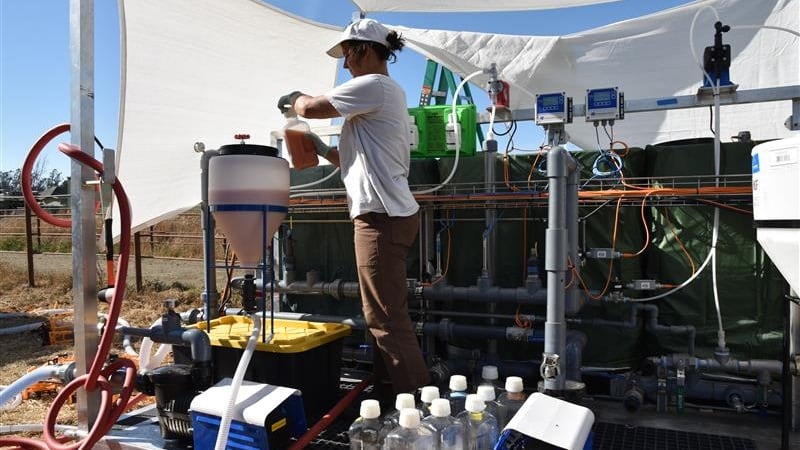Californian start-up Windfall Bio achieved Organic Materials Review Institute (OMRI) certification for its Foundation fertilizer, as the agtech company works to expand its methane-reducing technology through pilot projects on farms and landfills.
Windfall Bio uses natural methane-eating microbes (MEMs) to transform the climate-harming gas into Foundation, which is available in pellet and powder forms, the company shared in a press release. The agtech start-up launched in 2022 with a focus on providing farmers with a way to capture and convert methane into functional products, including in isolated areas, Josh Silverman, co-founder and CEO of Windfall Bio, told AgTechNavigator.
“Methane absolutely has value. There are great markets for it everywhere. But the question of how you get stranded methane to a place where you can monetize it and sell it has been a challenge,” Silverman elaborated.
While the certification opens up opportunities among organic farmers, all growers can benefit from more organic fertilizers, since synthetic options can compromise soil microbiomes and decrease carbon in the ground, Silverman noted.
“There is a larger trend of even non-organic-certified farmers who are adding more organic fertilizers to their soils because it is better for the soil. You have less runoff. You see a lot of regulators who are limiting the application for ammonia and nitrate because while those fertilizers [have] very high nitrogen availability, ... the downside is they are really soluble.” he elaborated.
Creating fertilizer as an ag side stream
With the OMRI certification, Windfall Bio can work with organic farms that “are literally not allowed to bring on to their site anything that is not certified [organic] because that would take away the facility’s certification,” Silverman noted.
Recently, Windfall Bio conducted pilot programs with two Whole Food suppliers, Straus Family Creamery and Darigold, he added.
Dairy farms often have “a manure lagoon open to the air, just bubbling methane straight out,” Silverman explained. Dairy farms can easily cover the space, but if farmers “do not have anything to do with the methane, it is a cost for zero benefit,” he said. Windfall Bio’s technology allows growers to produce fertilizer at “half the cost” of what they would normally pay, he added.
The application of Windfall Bio’s technology is finding use beyond the agriculture industry, with the agtech company partnering with Republic Services’ Sunshine Canyon Landfill in Los Angeles. MEMs reduce several other compounds and odors around landfills, he explained.
The microbes “are removing sulfur compounds. They are removing toxic halogenated compounds. They are removing various VOCs. ... We expect, and at least in the lab, have shown we can reduce those odor compounds out of the gas stream at the same time that the methane is being reduced,” Silverman elaborated.


